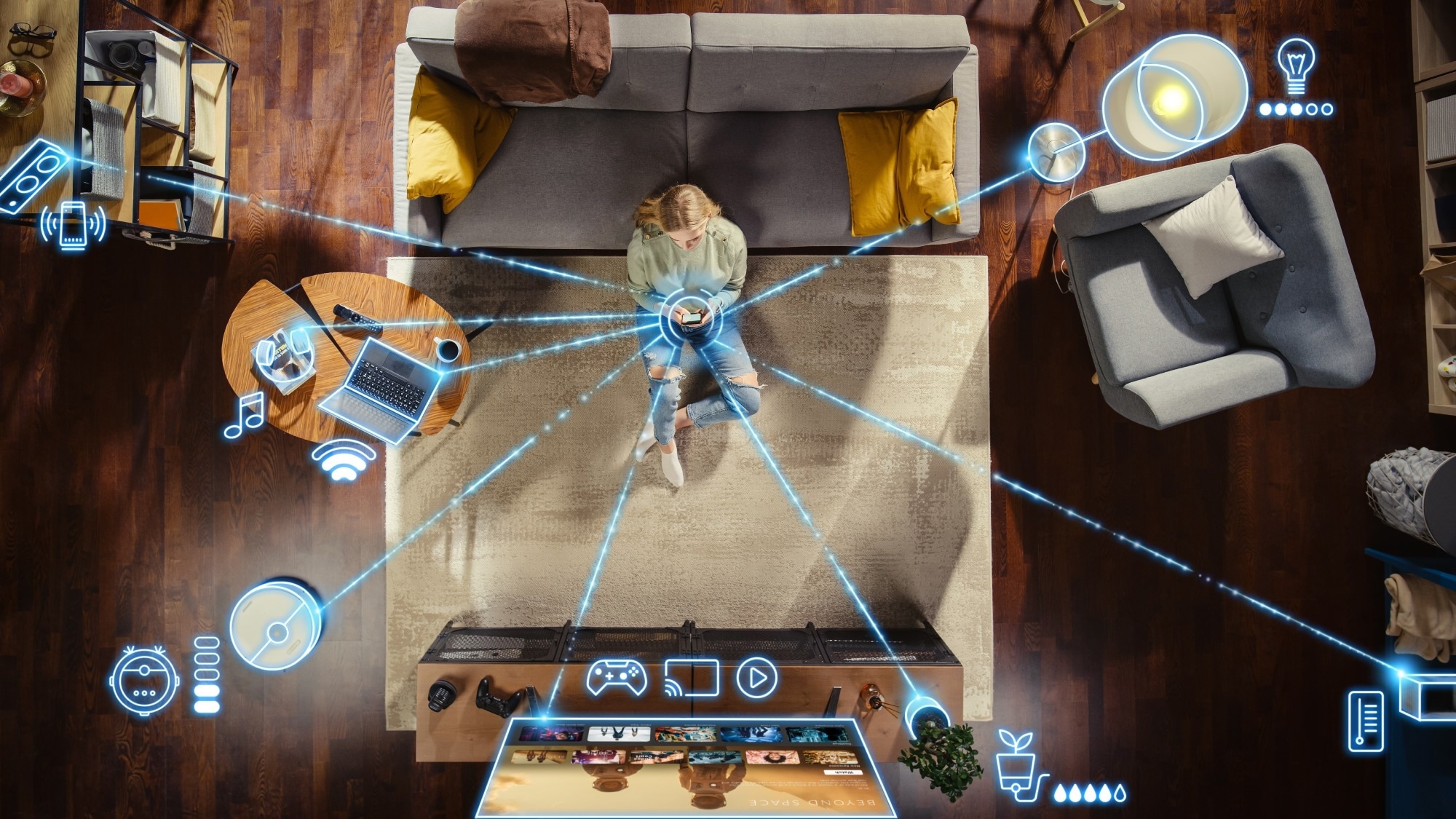From sleep monitoring to facial recognition and energy savings, AI is reshaping modern living. This tech doesn't just respond, it anticipates. Discover how smart home professionals are bringing intelligent, intuitive systems to homes everywhere.
 Image Credit: Gorodenkoff / Shutterstock
Image Credit: Gorodenkoff / Shutterstock
Artificial intelligence is rapidly changing the landscape of smart home technology, making homes more efficient, responsive, and personalized. From enhancing security and wellness to optimizing energy usage, AI-powered solutions are setting the stage for a future where homes can seamlessly adapt to the unique needs of their occupants.
"Artificial intelligence is revolutionizing smart home technology; it enables systems to anticipate needs of users, automate daily tasks and create a truly personalized living experience," said Daryl Friedman, global president and CEO of CEDIA, The Association for Smart Home Professionals™. "As AI continues to rapidly evolve, homeowners can expect smarter and more connected smart home tech – and professional integrators are at the forefront of bringing this technology to homeowners."
CEDIA highlights key areas where AI is making an impact in smart home technology:
AI-Powered Personalization and Automation: Smart home systems that utilize AI can learn user habits and preferences, automatically adjusting lighting, temperature, and entertainment settings to suit individual needs. For example, AI-enabled thermostats can analyze a homeowner's routine to optimize comfort and efficiency, eliminating the need for constant manual adjustments.
AI in Home Health and Wellness: AI-integrated smart home solutions can support wellness by monitoring sleep patterns, tracking air quality, and providing reminders for hydration and medication. These systems also assist caregivers by detecting irregularities, such as small deviations in sleep patterns, meal consumption, or mobility, and alerting family members or medical professionals when necessary.
Enhanced Security and Safety: AI-powered security systems can utilize technologies such as facial recognition, anomaly detection, and predictive analytics to improve home safety. Smart surveillance cameras can distinguish between familiar faces and unknown visitors, thereby reducing false alarms and providing real-time security alerts. A professional smart home integrator can assess a homeowner's security needs and design a tailored solution, integrating tech like motion sensors, smart locks, and alarm systems into one unified system. Many integrators also offer ongoing monitoring services, ensuring that a security system remains up-to-date and functions optimally with the latest technology.
Predictive Maintenance and Energy Optimization: AI can identify potential system issues, such as HVAC malfunctions, before they escalate, helping homeowners prevent costly repairs. Smart energy management solutions can analyze consumption patterns and automatically adjust usage to reduce energy consumption and lower energy bills.
"AI isn't just about convenience and automation--it's about making homes safer, more efficient and more comfortable," said Friedman. "As technology advances, the possibilities and advantages of AI-driven smart homes will only continue to grow-and professional integrators will play a key role in bringing these advancements to life."
For more information on AI-powered smart home tech or to find a certified smart home professional, visit cedia.org/Find-a-Smart-Home-Professional.